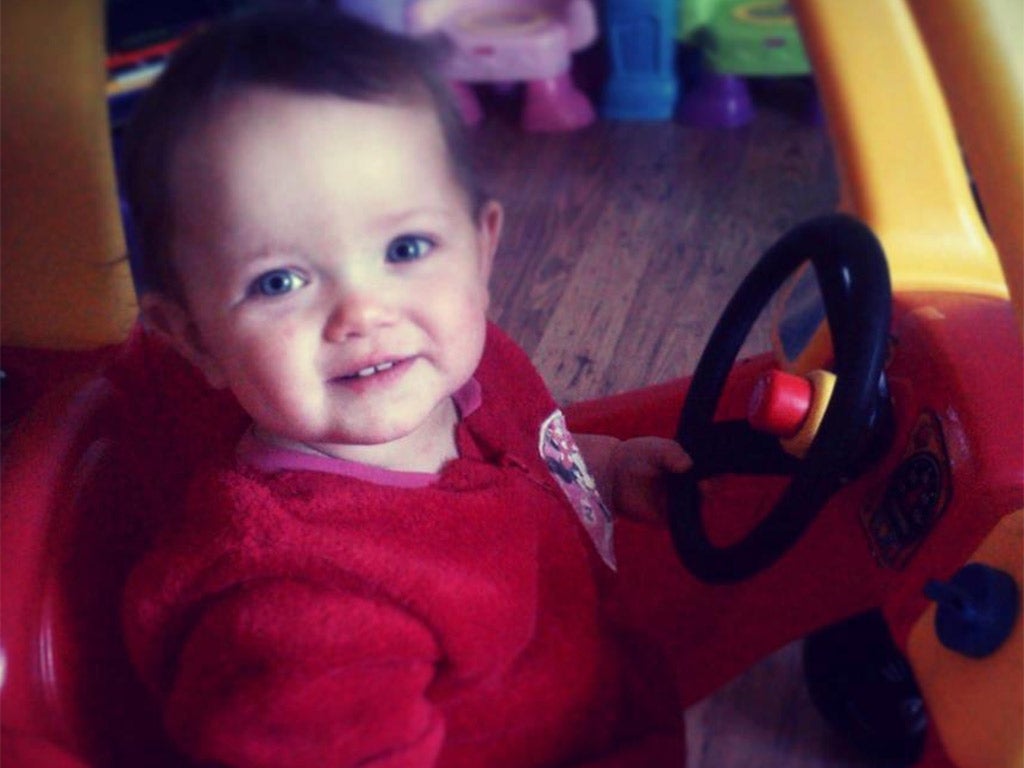Poppi Worthington: Police officer criticised over investigation in line to become Chief Constable
Cumbria Deputy Chief Constable - condemned over force investigation - in line for top job

Your support helps us to tell the story
From reproductive rights to climate change to Big Tech, The Independent is on the ground when the story is developing. Whether it's investigating the financials of Elon Musk's pro-Trump PAC or producing our latest documentary, 'The A Word', which shines a light on the American women fighting for reproductive rights, we know how important it is to parse out the facts from the messaging.
At such a critical moment in US history, we need reporters on the ground. Your donation allows us to keep sending journalists to speak to both sides of the story.
The Independent is trusted by Americans across the entire political spectrum. And unlike many other quality news outlets, we choose not to lock Americans out of our reporting and analysis with paywalls. We believe quality journalism should be available to everyone, paid for by those who can afford it.
Your support makes all the difference.Plans to promote a police officer criticised over the death of Poppi Worthington to the role of chief constable have prompted anger.
Michelle Skeer, the Deputy Chief Constable of Cumbria, has been chosen as the preferred candidate to take over the force’s top job in the spring.
Ms Skeer was one of the officers criticised by the independent police watchdog over the force’s “unstructured and disorganised” investigation into the death of 13-month-old Poppi in 2012.
The announcement of her potential promotion sparked calls for Cumbria police to be scrutinised. Barrow and Furness MP John Woodcock said: “This move to put an officer personally criticised over Poppi Worthington failings in charge of the whole constabulary gives fresh impetus to our calls for a public inquiry to restore confidence in the force.”
Mr Woodcock said that if the appointment was confirmed, Amber Rudd, the Home Secretary, should appoint an independent public inquiry.
An investigation by the Independent Police Complaints Commission (IPCC) found in March last year that Ms Skeer had failed to refer concerns about the handling of Poppi’s case either to it or to her force’s misconduct department.
She then delayed for at least a month calling a meeting to discuss criticisms of the investigation by a family court judge. The meeting, when called, lasted just 30 minutes, which “would not have been time to go through all the points raised in the judgment”, the IPCC said.
The watchdog said it had not found any evidence that Ms Skeer deliberately tried to stop the matter being investigated but added that it was “reasonable to suggest that without IPCC intervention this matter may never have been referred to them”. It said it had not found evidence to question her “honesty and integrity”.
Prosecutors are still considering a coroner’s finding that Poppi was sexually assaulted before her death in in Barrow-in-Furness. Two judgments by a High Court family judge, in 2014 and 2016, found that on the balance of probabilities, Paul Worthington, 50, abused his daughter, and highlighted a catalogue of failings by police.
Mr Worthington has been investigated several times over Poppi’s death but maintains his innocence. During the inquest he was asked more than 250 questions and declined to answer nearly all of them.
The panel that recommended Ms Skeer’s appointment included Sir Craig Mackey, the county’s former chief constable, who is now Deputy Commissioner of the Met Police, according to Peter McCall, the Cumbria police and crime commissioner.
He said: “Mrs Skeer was not involved in the original police investigation into the death of Poppi Worthington; indeed she initiated the second police investigation. At no stage during the IPCC investigation was there any question about Deputy Chief Constable Skeer’s honesty and integrity.”
The Cumbria police and crime panel will consider the appointment on 23 February.